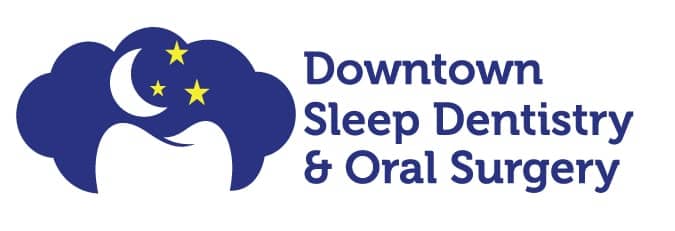Sedation Dentistry FAQs
We are asked questions about our sedation and anaesthesia services regularly. The following are just a few of the most common sedation and anaesthesia safety FAQ we receive. Please reach out to one of our friendly team members if you have any other safety FAQ or any questions related to your treatment, as we are always happy to speak with you.Is dental sedation and anaesthesia safe?
Are there different levels of anaesthesia?
Yes, there are multiple levels of sedation and anaesthesia available. For most patients general anesthesia means being asleep. It differs from a ‘sedation’ in that patients are completely unconscious. In this state, surgery in our downtown Hamilton dental office can be performed without any awareness on the part of the patient. From the patient’s perspective the entire procedure is over in the blink of an eye. This is an ideal technique for more extenesive procedures such as wisdom tooth removal.
In our sedation-safe dental office, Unconscious Sedation (also known as Deep Sedation) and General Anesthesia is induced through the intravenous administration of a series of medications. Only dental anaesthesiologists with formal multi-year residency training and education in anaesthesia are permitted to practice this type of anaesthesia. It is important to note that general dentists are NOT ALLOWED to administer this type of sedation!
Intravenous Conscious Sedation makes use of some of the same medications used in general anesthesia. The combination and dose of medication induces a state of light sleep. Patients can be roused easily. This technique in combination with local freezing allows patients to have their surgery in a very comfortable state while still feeling that they are in control.
Nitrous Oxide or ‘Laughing Gas’ makes most people somewhat giddy and feeling at ease. It is not suitable for individuals who are very nervous about their surgery, as it only provides a minimal level of sedation.
We will discuss all options with you prior to your treatement date to ensure you are fully aware of what to expect and have had the opportunity to ask any and all questions you may have. Our team is dedicated to making you feel comfortable so that you can receive the dental care you deserve.
What's to expect while sedated?
On average, we do not need to place a breathing tube down the airway or connect patients to ventilators. Because of this, recovery is much quicker. It is a similar unconscious sedation as having a colonoscopy. During the procedure we monitor your heart rate, heart rhythm, blood pressure and breathing continuously. Our nursing staff is well trained and certified in advanced resuscitation techniques. Our facility and equipment are routinely inspected by our regulatory body. To reduce risks to our patients we review your general health at the consultation. Individuals with ongoing breathing problems (such as asthma), heart conditions, uncontrolled diabetes or kidney failure may not be suitable for an office anaesthetic. Although nausea and vomiting are rare with the medications we now use, we still require all patients who receive intravenous medications to come on an empty stomach.
What's to expect after an anaesthetic?
Most patients regain alertness soon after stopping anaesthesia but remain sleepy or groggy for the next few hours. When deemed safe, you may be escorted by a responsible adult directly home via private car or taxi. Rest in the company of your escort, drink lots of fluids, and avoid exercise or activities requiring balance. Do not make any financial, business, retail or decisions involving money. It is also imperative that you DO NOT operate heavy machinery or drive a vehicle for the next 24 hours.
More questions?
Are you still left wondering about something after reading our most common safety FAQ? That’s OK – we love being asked new questions and ensuring our patients feel safe and confident about the treatment you are going to receive. Please contact us to schedule an appointment to discuss these questions in detail..Call: 905.528.8959
Working Hours
Monday – Friday from
8 a.m. – 3:30 p.m.
Consultation
We are here to answer any and all questions you may have regarding your sedation dentistry appointment.

